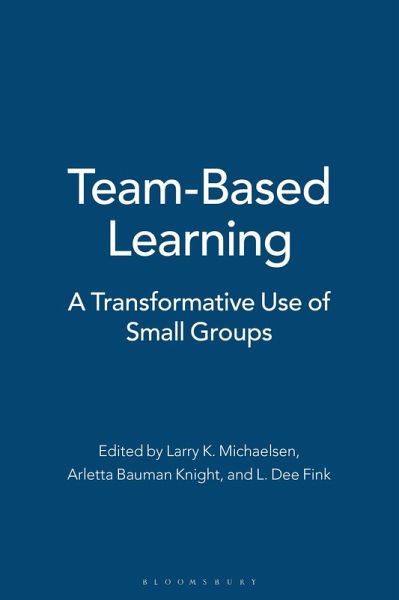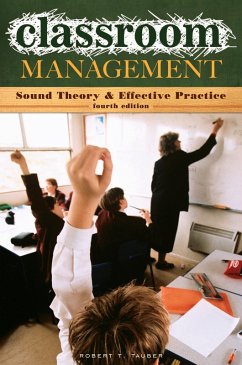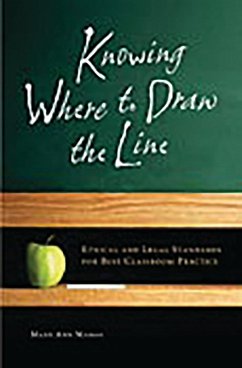
Team-Based Learning (eBook, PDF)
A Transformative Use of Small Groups
Redaktion: Michaelsen, Larry K.; Fink, L. Dee; Knight, Arletta Bauman
Versandkostenfrei!
Sofort per Download lieferbar
58,95 €
inkl. MwSt.
Weitere Ausgaben:

PAYBACK Punkte
29 °P sammeln!
Team learning is an especially powerful way of using small groups. Different authors have used different terms when writing about small groups: learning groups, collaborative learning, cooperative learning, and team learning. Despite the varying terminology, all refer to the same idea: putting individual students in a class into small groups for the purpose of promoting more active and more effective learning. By creating a course structure that involves small groups in the initial acquisition of course content, in learning how to apply that content, and in the assessment of student learning, ...
Team learning is an especially powerful way of using small groups. Different authors have used different terms when writing about small groups: learning groups, collaborative learning, cooperative learning, and team learning. Despite the varying terminology, all refer to the same idea: putting individual students in a class into small groups for the purpose of promoting more active and more effective learning. By creating a course structure that involves small groups in the initial acquisition of course content, in learning how to apply that content, and in the assessment of student learning, the procedures of team learning offer teachers an extremely powerful tool for creating several kinds of higher level learning. The key to using this tool successfully lies in understanding a few key principles of team dynamics and then learning how to apply those principles to specific subject matter and in a variety of teaching situations. This book explains those principles and shows how team learning transforms the structure of the course, transforms small groups into teams, and transforms the quality of student learning.













